A Message About the Corruption in New Hampshire – From Anonymous!
Greetings world! we are Anonymous!
The corruption in the state of New Hampshire; has reached an all-time high level, and there is no escape for these criminals. This includes the clerk of courts, who are working with the corrupt judges, courtrooms, and state officials. Anonymous; with the state of corruption, has uncovered the clerk of court actions, of manipulating notices and redacting evidence. Anonymous sees that these criminals are at a point of desperation. We don’t need your names; we know who you are. Trying to shut down the state of corruption with Mr. Michael Gill, and taking our first amendment rights?
What these criminals do not realize; is you can try to take our freedom, our money, our children, and our lives, but we are not one, we are many. We will not stop! Mr. Bill Shaheen; and Mr. Steve Gordon, how long do you think you can keep up these dirty deeds? Moving drugs and destroying our great state. Anonymous, and the people of New Hampshire, united with the great state of Florida, have strength in numbers. If you destroy one of us; a million more will show up, and take their place.
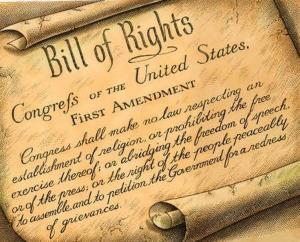 Image Credit:www.FreedomWorks.org
Image Credit:www.FreedomWorks.org
We are watching. we are ready. We do not forgive. we do not forget. we are the Anonymous Legion. Expect us.

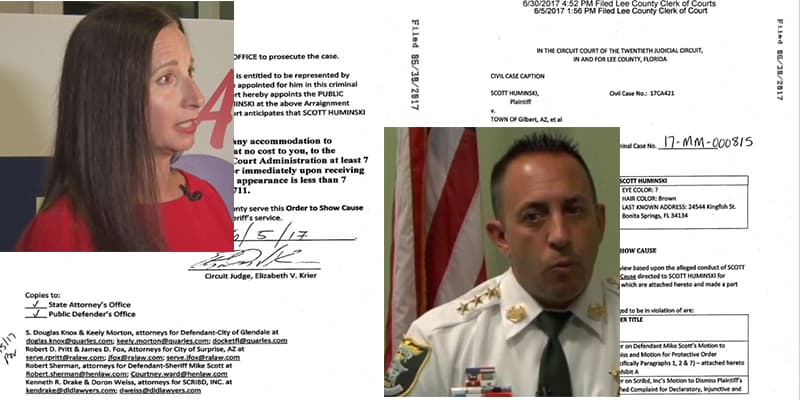
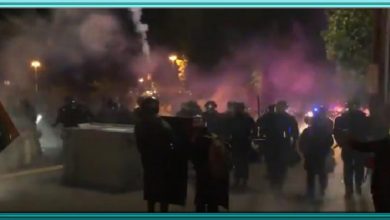


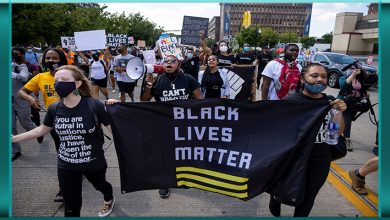



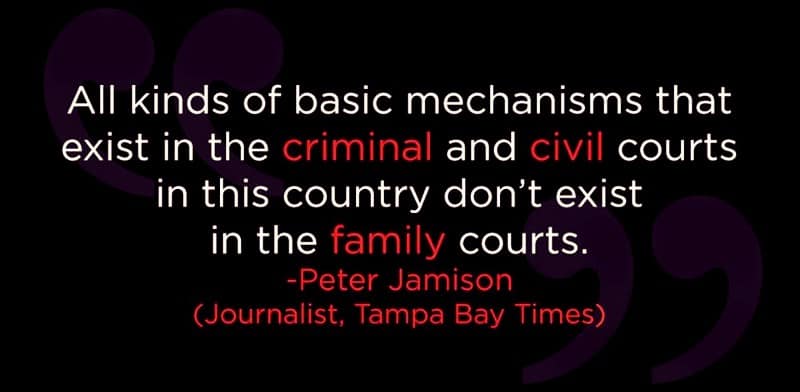




Correction of typo error in Affidavit…….NH Supreme court case 108 NH 386 is the correct citation where Justice Grimes
confirms RSA 382-A:9-109, that an AUTOMOBILE is classified as “Consumer Goods”, not requiring a registration tag
or license to travel nor is there any tax on “Consumer Goods”
Concord Court Judgment Rebuttal NH CIRCUIT COURT – Re: State v. A MARPLE Case- 429-2014CR-00153 Notice of First and Final Warning Notice to Principal is Notice to Agent; Notice to Agent is Notice to Principal AFFIDAVIT OF TRUTH IN COMMERCE – COMMERCIAL LIEN PROCESS
NOTICE OF INSTRUCTION PURSUANT TO ARTICLE 32, NEW HAMPSHIRE BILL OF RIGHTS.
U. .S. v. Kis, 658 F.2d 526, (7th Cir. 1981) “Indeed, no more than that is necessary to make the prima facie case.
MAXIMS OF THE CIVIL LAW IN SUPPORT OF SELF AUTHENTICATED CONTRACT
Silence is consent. 6 Barb. [N.Y.] 2B, 35.Qui non negat, fatetur. He who does not deny, admits. Trayner, Max. 503. Under Federal law, which is applicable to all states, the U.S. Supreme Court stated that if a court is “without authority, its judgments and orders are regarded as nullities. They are not voidable, but simply void; and form no bar to a recovery sought, even prior to a reversal in opposition to them. They constitute no justification; and all persons concerned in executing such judgments or sentences, are considered, in law, as trespassers. “Elliot v. Piersol, 1 Pet. 328, 340, 26 U.S. 328, 340 (1828)” Id at 536. Further, Void judgment is one where court lacked personal or subject matter jurisdiction or entry of order violated due process, U.S.C.A. Const. Amend. 5-Triad Energy Corp. v. McNell, 110 F.R.D. 382 (S.D.N.Y. 1986), and The Illinois Supreme Court has held that “if the magistrate has not such jurisdiction, then he and those who advise and act with him, or execute his process, are trespassers” Von Kettler et al v. Johnson, 57 Ill 109; “Second, a judge is not immune for actions, though judicial in nature, taken in the complete absence of all jurisdiction.[29]” Mireles v. Waco 502 US 9, 116 L Ed 2d 9, 14, 112 S Ct 286 (US 1991)
Further, A judge is not a court; he is under law an officer of the court, and he must not engage in any action to deceive the court. Trans Aero Inc. v. LaFuerga Area Boliviana, 24 F.3d 457 (2nd Cir. 1994); Bulloch v. United States, 763 F.2d 1115, 1121 (10th Cir. 1985) Fraud upon the court exists “where the judge has not performed his judicial duties”. Each element constitutes fraud upon the court in the U.S., when an officer of the court is found to have fraudulently presented facts to court so that the court is impaired in the impartial performance of its legal task, the act, known as “fraud upon the court”, is a crime deemed so severe and fundamentally opposed to the operation of justice that it is not subject to any statute of limitation. “Fraud upon the court” makes void the orders and judgments of that court.
The U.S. Supreme Court has consistently held that a void order is void at all times, does not have to be reversed or vacated by a judge, cannot be made valid by any judge, nor does it gain validity by the passage of time. The order is void ab initio. Vallely v. Northern Fire & Marine Ins. Co., 254 U.S. 348, 41 S.Ct. 116 (1920). “Fraud destroys the validity of everything into which it enters,” Nudd v. Burrows (1875), 91 US 426, 23 Led 286,290; particularly when “a judge himself is a party to the fraud,” Cone v. Harris (Okl. 1924), 230 P. 721, 723. Windsor v. McVeigh (1876), 93 US 276, 23 Led 914, 918. Bond vs. UNITED STATES, 529 US 334 – 2000.
The Supreme Court held that the American People are in fact Sovereign and not the States or the Government. The court went on to define that local, state and federal law enforcement officers were committing unlawful actions against the Sovereign People by the enforcement of the laws and are personally liable for their actions.– Cited by 761 litigants in other cases. Bond v. US, 131 S. Ct. 2355 – 2011 – Supreme Court – Cited by 306 “ “Bond v. US, 1 F. 3d 631 – 1993 – Court of Appeals, 7th – Cited by 66 “ Each element constitutes fraud upon the court in the U.S., when an officer of the court is found to have fraudulently presented facts to court so that the court is impaired in the impartial performance of its legal task, the act, known as “fraud upon the court”, is a crime deemed so severe and fundamentally opposed to the operation of justice that it is not subject to any statute of limitation.
INTRODUCTION
This Affidavit is addressed to each of the below named public servant trespassers, with Article 32 “Instructions” for hand delivery by Clerk McCafferty, she delivering copy to each of the named Libellees in their official and individual personal capacities. Each libellee is a Trustee of the people, for whom they must promptly act as Fiduciaries, performing their duty under the relationship contracted by THEIR OATH and employment by the municipal corporation serving the Republic of New Hampshire. Their “accountable“ acts are pursuant to THEIR OATH given to ARTICLE EIGHT of the New Hampshire Bill of Rights. Libellees listed in this document admit to the truth and guilt of having been NOTICED that this Affiant had formally accepted Libellees Oaths of Office to the Constitutions, as by-laws, and acceptance of their employment in their public office, as an offer to contract, thus creating said binding contract, under Oath, to provide all protection of Constitutional Secured Rights on behalf of this Affiant. To wit: “South Carolina v. United States, 199 U.S. 437, 448-449, in an opinion by Mr. Justice Brewer, this court quoted these words with approval, and said;:”‘The Constitution is a written instrument. As such, its meaning does not alter. That which it meant when adopted, it means now” Home Building & Loan Association v. Blaisdell, 290 U.S. 398, 448-450 (1934)
CLAIMS AND DEMAND
Hon. M. Kristin Spath, Magistrate;
Theresa A. McCafferty, Clerk of Court Marianne P. Ouellet, ESQ, Prosecutor; Sergeant Brian A. Michael, Epsom Police Department All addressed in care of the 6th Circuit – District Division – Concord
32 Clinton Street Concord, NH 03301
Now comes the Affiant, A. Richard: Marple, Sui Juris, a freeborn American Sovereign sojourning in the Republic of New Hampshire who invokes, inter alia, the specific immunities under Foreign Sovereign Immunities Act section 1602-1611 in its entirety and who has personal, first-hand knowledge of all of the facts enumerated within this Affidavit. Affiant places his full Commercial Liability within this record and makes his common law claim to all named and un-named Libellees who are [63C Am. Jur. 2d §247] fiduciaries, employed by municipal corporations and all are a party to the collective conspiracy that has caused the injury and loss of this Affiants liberty, freedom, injury, emotional and physical pain and suffering , public embarrassment and humiliations caused by the two false arrests and imprisonment and expenses for Bonds printed as “CRIMIAL” requiring a Jury Trial which was not docketed. Such Bonds were necessary to purchase freedom from the incarceration caused by M .Kristin Spath who knowingly failed to follow the proper protocol enumerated in Article 87 of the New Hampshire Constitution. No warrants were ever produced for either of the two unlawful arrests made by Hooksett Police. The damages, now on the record and ledger must be increased accordingly for each violation recorded and require settlement of damages pursuant to the court established ledger expressed in Trezevant v. City of Tampa, 741 F.2d 336, (11th Cir, 9-6-1984) The US Court of Appeal awarded $65,217.39/hour. Affiant demands damages in lawful money which is currently being minted as one troy ounce silver coins at the San Francisco, California Mint. Damages are for Affiants loss of Freedom, Liberty and false imprisonment. Affiant is a non-corporate, natural born creation of GOD; a living breathing sentient sole, a being on the soil, Sui Juris, with clean hands. Affiant is NOT the ens legis or “strawman” addressed in capital letters in the “Presentments” nor is he the “Person” expressed in the RSA’s that he is purported to have violated. (See 612 F.2d 417 (1979) for courts definition of “PERSON”. Further, he has not given power of attorney to anyone to use his name, which is his property, and demands settlement for such trespass upon the common law Copyright of the Affiants ’lawful name’ and hereby NOTICES this court of FATAL DEFECTS and ERRORS in the fictitious simulated “Order” , now being returned as it is a vexatious and barratrously false and malicious legal process nullified by RSA 382-A:3-501 as there is No lawful “Instrument” on the record or can be entered into the record, since there has been no rebuttal to the two previous Affidavits, now on the record with copies residing with the Secretary of State. The doctrine of estoppels has tolled. Hence, jurisdiction is thus denied.
Attached find the unaccepted and returned “Presentment,” styled; as an “Order”, dated April 24, 2017 over the signature of M. Kristin Spath, which was delivered to the Affiant by U.S. Mail, thus a violation of 18 U.S.C. 1341. The “Order” purports to rule on April 18, 2017 MOCK TRIAL, or rather a fictional drama orchestrated by M .Kristen Spath, who invited this Affiant to participate in her FRAUD UPON THE COURT. Affiant responded; “Are you inviting me to participate in a Fraud?” Silence prevailed and the question was repeated with continued silence. The unlawful MOCK TRIAL/drama had been foreclosed upon by estoppel, enumerated in the two un-rebutted affidavits NOW RESTING IN THE OFFICE OF THE SECRETARY OF STATE. However the ultra vires acts and abuse of process by M. Kristen Spath prompted her MOCK TRIAL/drama to continue, as portrayed with Officer Michael being questioned by co-conspirator and prosecutor, Marianne P. Ouellet, ESQ. The MOCK TRIAL/drama concluded with this Affiant, standing in the audience and verbally informing all that there was no jurisdiction on the record and that the exercise just witnessed was a nullity in law. The New Hampshire Supreme court in 1967 case 108 NH 306, Justice Grimes confirmed the fact that the “automobile” is in fact classified as “Consumer Goods” Cited in RSA 382-A:9-109. There is no known statutes that requires “Consumer Goods” to be “registered”, nor does one require a license to travel in an “automobile”. This evidence was accepted and placed in the record. As the video record will attest 108 NH 306 had been delivered in hand to Magistrate Spath by the attending bailiff, thus she had full knowledge she had no jurisdiction and should have followed the explicit “instructions” she received, and on the record, pursuant to Article 32 of the New Hampshire Bill of Rights”. She did not do so and thereby knowingly violated RSA 643:1 inter alia.
Accordingly, the “Presentment”, styled as an “ORDER “is NOT accepted and is returned as the nullity it is, and for failure to provide a copy of the “Instrument”, that was purportedly presumed to exist but does NOT. This failure inter alia, violates Article 15, N.H. Bill of Rights “Due Process” mandate which denies jurisdiction. Affiant recorded the delivery of the photo ID he had purchased, for the magistrate M. Kristen Spath to inspect in her own hands. Upon her acceptance, and as she held the same in her hands, she, M. Kristen Spath was instructed to note the capital letters, “T.D.C” appended to Affiants autograph. And upon her inquiry, Affiant advised that the characters represented “Threat, Duress, & Coercion” and that the Photo ID was not an “Instrument” or contract requiring compelled performance and in Fact was non- assumpsit. Since the Photo ID was not a contract and no other “instrument”, as required by RSA 382-A: 3-501 was produced, such lack of subject matter jurisdiction was confirmed.
Affiant has made several requests that his property, the Photo ID with his contract as a body donor to
Mary Hitchcock for medical research, be returned to him. The conspiring libellees continue to deny
him his request and this denial constitutes a criminal Tort known as “CONVERSION”.
Accordingly, estoppel had been recorded in the two un-rebutted Affidavits which would forestall any further proceedings but M. Kristen Spath ignored all evidence submitted and recklessly continued her malicious prosecution with “Fraud upon the Court”. Since this Affiant did not have a so-called driver’s license, a fact expressed by M. Kirsten Spath in her SIMULATED “ORDER”, it must be concluded that Logic will dictate and reason must prevail, in that one cannot “suspend” something that does NOT EXIST. Such an assertion is an exercise in semantic deceit and is a fraud asserted by M. Kirsten Spath.
Affiant demanded that since the documents covering the BAIL proceedings had printed on them, “Criminal Complaint”. The Magistrate was asked just what was the jurisdiction being asserted? If it was
“Criminal,“then a jury trial in “Common Law” would be demanded. Silence prevailed and an answer was never offered. This Affiant then asked M.. Kristin Spath to recuse herself as there was abundant evidence of animus and bias on record. M. Kristin Spath’s refusal to recuse herself is NOT within her discretion and her continuing the unlawful proceedings manifested her ultra vires act. There is no discretion for a Magistrate not to disqualify themselves. By law, Judge/magistrates are bound to follow the law. Should a judge not disqualify himself as required by law, then the judge has given another example of his “appearance of partiality” which, further disqualifies the judge. When a judge does not disqualifies himself, then the judge is in violation of the Due Process Clause of the U.S. Constitution. United States v. Sciuto, 521 F.2d 842, 845 (7th Cir. 1996) “The right to a tribunal free from bias or prejudice is based, …on the Due Process Clause.”. M. Kristen Spath refused to comply with the memorandum of law enumerating 40 plus citations of stare decisis supporting lack of jurisdiction in this matter. N.H. constitution Article 32 “Instructions” were delivered to M. Kristen Spath with “instructions” to dismiss this matter for lack of jurisdiction. Further, and in particular, her violation of Federal Law, 15 Statutes at Large, Chapter 240, “Rights of an American Citizen in foreign States”. This statute is the foundation for the OATH PURGATORY on file within the record, confirming Affiant’s compliance with 8 USC 1481(a)(2) and clearly establishing affiants political status. Affiant is NOT a 14th amendment U.S. Citizen, as asserted by M. Kristen Spath, nor is he a “person” referenced in the statutes purportedly controlling the contended matter.
This Affidavit enumerates the trespass by all libellees as conspirators named together with their violation , inter alia of 18 USC 241 and 18 USC 242 as well as 18 USC 134. Further, “There are two elements in mail fraud: (1) having devised or intending to devise a scheme to defraud (or to perform specified fraudulent acts), and (2) use of the mail for the purpose of executing, or attempting to execute, the scheme (or specified fraudulent acts).” Schmuck v. United States, 489 U.S. 705, 721 n. 10 (1989); see also Pereira v. United States, 347 U.S. 1, 8 (1954) (“The elements of the offense of mail fraud under . . . § 1341 are (1) a scheme to defraud, and (2) the mailing of a letter, etc., for the purpose of executing the scheme.”); Laura A. Eilers & Harvey B. Silikovitz, Mail and Wire Fraud, 31 Am. Crim. L. Rev. 703, 704 (1994). Further, libellees jointly violated RSA 643:1 Official Oppression. The video records will include all paper documents submitted including the Affiants compliance with 18 USC 4 Misprision of Felony
Concerning the documented evidence of a copy of a Memorandum of Law sent certified mail to the Candia court challenging jurisdiction where in the magistrate, David G. LaFrancois affixed his hand written “Motion denied” signed and dated 4/10/13 the Memorandum, removed from the court file and returned to this affiant by U.S. Mail. This is clear violation of 18 USC 2071. This violation was verbally given to M. Kristen Spath with copy of the evidence prior to her continuing the unlawful proceedings and then was given verbally a second time on video record. Nothing has been revealed that action has been taken. Failure to prosecute when documented evidence is submitted appears to be an obstruction of justice.
The essential elements of fraud based on failure to disclose material facts are:
“Fraud On The Court By An Officer Of The Court” and “Disqualification Of Judges, State and Federal”
1. A judge is an officer of the court, as well as are all attorneys. A state judge is a state judicial officer, paid by the State to act impartially and lawfully. A federal judge is a federal judicial officer, paid by the federal government to act impartially and lawfully. State and federal attorneys fall into the same general category and must meet the same requirements. A judge is not the court. People v. Zajic, 88 Ill.App.3d 477, 410 N.E.2d 626 (1980).
2. “Fraud on the court” is whenever any officer of the court commits fraud during a proceeding in the court, he/she is engaged in “fraud upon the court”. In Bulloch v. United States, 763 F.2d 1115, 1121 (10th Cir. 1985), the court stated “Fraud upon the court is fraud which is directed to the judicial machinery itself and is not fraud between the parties or fraudulent documents, false statements or perjury. … It is where the court or a member is corrupted or influenced or influence is attempted or where the judge has not performed his judicial function — thus where the impartial functions of the court have been directly corrupted.” “Fraud upon the court” has been defined by the 7th Circuit Court of Appeals to “embrace that species of fraud which does, or attempts to, defile the court itself, or is a fraud perpetrated by officers of the court so that the judicial machinery cannot perform in the usual manner its impartial task of adjudging cases that are presented for adjudication.” Kenner v. C.I.R., 387 F.3d 689 (1968); 7 Moore’s Federal Practice, 2d ed., p. 512, ¶ 60.23. The 7th Circuit further stated “a decision produced by fraud upon the court is not in essence a decision at all, and never becomes final.”
3. What effect does an act of “fraud upon the court” have upon the court proceeding?
“Fraud upon the court” makes void the orders and judgments of that court. It is also clear and well-settled Illinois law that any attempt to commit “fraud upon the court” vitiates the entire proceeding. The People of the State of Illinois v. Fred E. Sterling, 357 Ill. 354; 192 N.E. 229 (1934) (“The maxim that fraud vitiates every transaction into which it enters applies to judgments as well as to contracts and other transactions.”); Allen F. Moore v. Stanley F. Sievers, 336 Ill. 316; 168 N.E. 259 (1929) (“The maxim that fraud vitiates every transaction into which it enters …”); In re Village of Willowbrook, 37 Ill.App.2d 393 (1962) (“It is axiomatic that fraud vitiates everything.”); Dunham v. Dunham, 57 Ill.App. 475 (1894), affirmed 162 Ill. 589 (1896); Skelly Oil Co. v. Universal Oil Products Co., 338 Ill.App. 79, 86 N.E.2d 875, 883-4 (1949); Thomas Stasel v. The American Home Security Corporation, 362 Ill. 350; 199 N.E. 798 (1935). Under Illinois and Federal law, when any officer of the court has committed “fraud upon the court”, the orders and judgment of that court are void, of no legal force or effect.
4. What causes the “Disqualification of Judges?” Federal law requires the automatic disqualification of a Federal judge under certain circumstances. In 1994, the U.S. Supreme Court held that “Disqualification is required if an objective observer would entertain reasonable questions about the judge’s impartiality. If a judge’s attitude or state of mind leads a detached observer to conclude that a fair and impartial hearing is unlikely, the judge must be disqualified.” [Emphasis added]. Liteky v. U.S., 114 S.Ct. 1147, 1162 (1994).
Courts have repeatedly held that positive proof of the partiality of a judge is not a requirement, only the appearance of partiality. Liljeberg v. Health Services Acquisition Corp., 486 U.S. 847, 108 S.Ct. 2194 (1988) (what matters is not the reality of bias or prejudice but its appearance); United States v. Balistrieri, 779 F.2d 1191 (7th Cir. 1985) (Section 455(a) “is directed against the appearance of partiality, whether or not the judge is actually biased.”) (“Section 455(a) of the Judicial Code, 28 U.S.C. §455(a), is not intended to protect litigants from actual bias in their judge but rather to promote public confidence in the impartiality of the judicial process.”). That Court also stated that Section 455(a) “requires a judge to recuse himself in any proceeding in which her impartiality might reasonably be questioned.” Taylor v. O’Grady, 888 F.2d 1189 (7th Cir. 1989). In Pfizer Inc. v. Lord, 456 F.2d 532 (8th Cir. 1972), the Court stated that “It is important that the litigant not only actually receive justice, but that he believes that he has received justice.” The Supreme Court has ruled and has reaffirmed the principle that “justice must satisfy the appearance of justice”, Levine v. United States, 362 U.S. 610, 80 S.Ct. 1038 (1960), citing Offutt v. United States, 348 U.S. 11, 14, 75 S.Ct. 11, 13 (1954). “Recusal under Section 455 is self-executing; a party need not file affidavits in support of recusal and the judge is obligated to recuse herself sua sponte under the stated circumstances.” Taylor v. O’Grady, 888 F.2d 1189 (7th Cir. 1989). Further, the judge has a legal duty to disqualify himself even if there is no motion asking for his disqualification. The Seventh Circuit Court of Appeals further stated that “We think that this language [455(a)] imposes a duty on the judge to act sua sponte, even if no motion or affidavit is filed.” Balistrieri, at 1202.
Judges do not have discretion not to disqualify themselves. By law, they are bound to follow the law. Should a judge not disqualify himself as required by law, and then the judge has given another example of his “appearance of partiality” which further disqualifies the judge. Should another judge not accept the disqualification of the judge, then the second judge has evidenced an “appearance of partiality” and has possibly disqualified himself/herself. None of the orders issued by any judge who has been disqualified by law would appear to be valid. It would appear that they are void as a matter of law, and are of no legal force or effect as is the instant matter of: State v. A MARPLE Case- 429-2014CR-00153
Should a judge not disqualify himself, then the judge is violation of the Due Process Clause of the U.S. Constitution. United States v. Sciuto, 521 F.2d 842, 845 (7th Cir. 1996) “The right to a tribunal free from bias or prejudice is based, not on section 144, but on the Due Process Clause.” The record and video’s of the instant matter will show several denial of “due process”, hence lack of jurisdiction.
Should a judge issue any order after he has been disqualified by law, and if the party has been denied of any of his property, then the judge may have been engaged in the Federal Crime of “interference with interstate commerce”. The judge has acted in the judge’s personal capacity and not in the judge’s judicial capacity. It has been said that this judge, acting in this manner, has no more lawful authority than someone’s next-door neighbor (provided that he is not a judge). Affiant is a non-represented litigant, and should the court not follow the law as to non-represented litigants, then the judge has expressed an “appearance of partiality” and, under the law, it would appear that she has disqualified herself. However, since not all judges keep up to date in the law, and since not all judges follow the law, it is possible that a judge may not know the ruling of the U.S. Supreme Court and the other courts on this subject. Notice that it states “disqualification is required” and that a judge “must be disqualified” under certain circumstances. The Supreme Court has also held that if a judge wars against the Constitution, or if he acts without jurisdiction, he has engaged in treason to the Constitution. If a judge acts after he/she has been automatically disqualified by law, then he is acting without jurisdiction, and that implies that he is then engaging in criminal acts of treason, and may be engaged in extortion and the interference with interstate commerce. Courts have repeatedly ruled that judges have no immunity for their criminal acts. Since both treason and the interference with interstate commerce are criminal acts, no judge has immunity to engage in such acts. The following stare decisis support Affiants asservation.
“A statute does not trump the Constitution”. People v. Ortiz, (1995) 32 Cal.App.4th at p. 292, fn. 2 Conway v. Pasadena Humane Society (1996) 45 Cal.App.4th 163 UNITED STATES OF AMERICA, v. JERRY ARBERT POOL, C.A. No. 09-10303, IN THE UNITED STATES COURT OF APPEALS FOR THE NINTH CIRCUIT (Opinion filed September 14, 2010), On Appeal From The United States District Court For The Eastern District of California.
“Astatutory privilege cannot override a defendant’s constitutional right. “People v. Reber, (1986) 177 Cal.App.3d. 523 [223 Cal.Rptr.139}; Vela v. Superior Ct, 208 Cal.App.3d. 141 [255 Cal. Rptr. 921], however, “the judiciary has a solemn obligation to insure that the constitutional right of an accused to a fair trial is realized. If that right would be thwarted by enforcement of a statute, the state …must yield. “Vela v. Superior Ct., 208 Cal.App.3d. 141 [255 Cal. Rptr. 921 “Obviously, administrative agencies, like police officers must obey the Constitution and may not deprive persons of constitutional rights.” Southern Pac. Transportation Co. v. Public Utilities Com., 18 Cal.3d 308 [S.F. No. 23217. Supreme Court of California. November 23, 1976.] “If evidence of a fact is clear, positive, un-contradicted and of such nature it cannot rationally be disbelieved, the court must instruct that fact has been established as a matter of law”. Roberts v. Del Monte Properties Co., 111 CA2d. 69 (1952. “Silence is acquiescence”: Georgia v. South Carolina,497 U.S. 376 (1990) U.S. Supreme Court -Central Pacific Railway Co. v, Alameda County. 284 U.S. 463 (1932)
This affidavit complies with all known rules of evidence Rule 301 FRCP & Rule 36 FRCP, etal.
All know FACTS are understood to be accurate, and the record is confirmed by the four videos of proceedings challenging jurisdiction of Magistrate, M. Kristen Spath. Beware of the liability the court places on all public servants as expressed in, 437 U.S. 800 @821. The stare decisis cited are relied upon as being unconditionally proved. Further, there is an express stipulation that silence and failure to rebut, point for point, for all issues and stare decisis expressed herein within 30 days from the date “stamped received” by the Secretary of State Office for recording; will be understood as a confession and acceptance. Golden Eagle Ins. Co. v. Foremost Ins. Co. (1993) 20 CA4th, 1372, 1385, 25 CR2d 242
Such Silence will be recorded as a Nihil Dicit judgment by acquiescence, and refusal to perform as well as tacit acquiescence of all FACTS herein enumerated. Such Silence will, by ignoring this Affidavit, be understood as nonfeasance and a confession of the truths enumerated herein and acceptance of all facts enumerated herein, The doctrine of estoppels will automatically toll and prevail, pursuant to; Carmen v. Bowen, 64 A.932 (1906) “Government officers and agents are required to affirmatively prove whatever authority they claim. In the absence of proof, they may be held personally accountable for loss, injury and damages”. Ryder v United States, 115 S. Ct. 2031, 132 L.Ed.2d 136, 515 U.S. 177, “Failure to contest an assertion … is considered evidence of acquiescence”. US Supreme Court Mitchell v. United States – No. 97-7541 (Dec. 9, 1998) ;“For purposes of this subdivision an evasive or incomplete disclosure, answer, or response is to be treated as a failure to disclose, answer, or respond ” 85 Cunningham v. Hamilton County No. 98-727 27 US 198. This Affidavit consists of 7 pages plus exhibits and with the return of M. Kristen Spaths simulated “Order”. Affidavit is made in Good faith, without ill will, vexation or frivolity. All rights Reserved. None waived
“Without Prejudice UCC 1-103, UCC 1-308.
A.Richard: Marple, Sui Juris
11 Dartmouth Street
Hooksett, New Hampshire Republic June 22, 2017